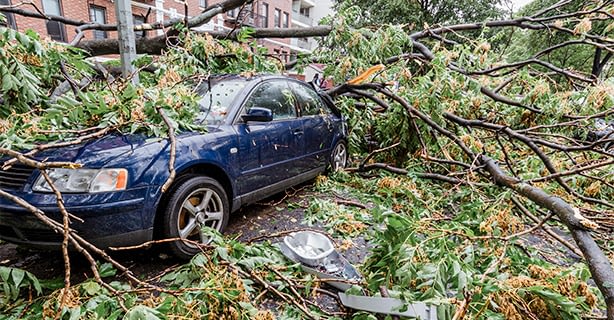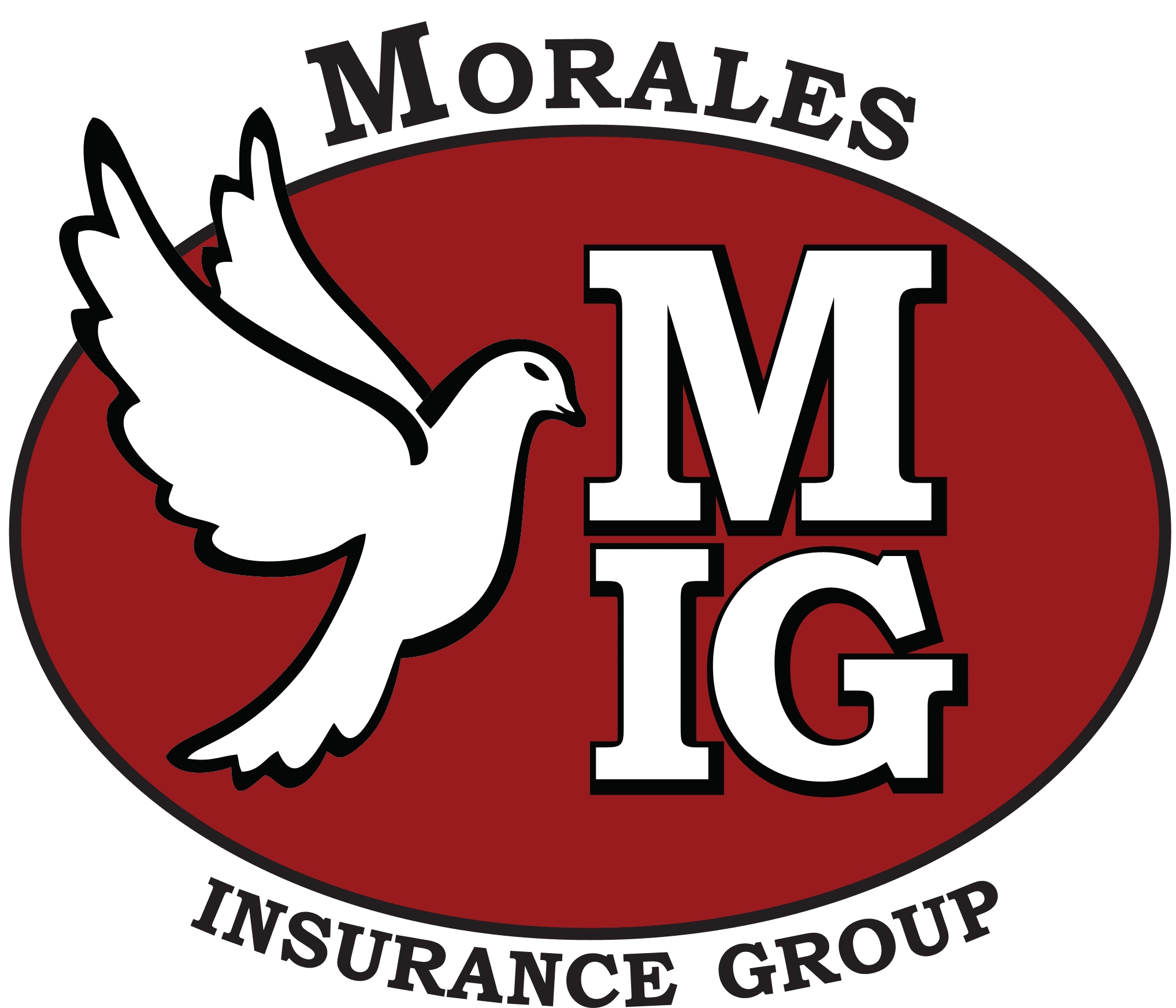
Comprehensive auto insurance applies to covered incidents beyond your control, including theft and weather-related damage. Collision auto insurance helps cover your vehicle if you’re in an accident—even if you’re at fault.
If you’re shopping for auto insurance coverage, we can help you understand the differences and similarities between comprehensive vs. collision insurance.
Comprehensive and collision overview
Comprehensive insurance
- What it covers: Incidents that damage your car through no fault of your own and beyond your control. That includes:
- Weather-related damage, such as hail
- Vandalization
- Theft
Comprehensive coverage often takes special circumstances into account. If you accidentally hit an animal, for example, it’s considered out of your control—and, therefore, covered by comprehensive insurance. If you live or are frequently planning to drive in a rural area with a high deer population, comprehensive coverage can provide significant value.
- What it doesn’t cover: Damage directly related to at-fault accidents—that’s where collision coverage comes in.
- Comprehensive deductible: When purchasing your insurance, you can select a deductible. The deductible is the amount you pay toward a claim before your insurance provider begins contributing. For example, let’s say you have a $500 deductible, and your car’s door gets dented. Fixing the door costs $1,200. You’ll pay the initial $500, and your insurance covers the rest.
- Limits: Unlike liability coverage, comprehensive insurance doesn’t offer multiple limits. The limit is typically equal to the value of your vehicle. If your car is worth $15,000, your insurance won’t cover you beyond that amount.
Collision insurance
- What it covers: Collision coverage will cover your vehicle if you’re in an accident—even if you caused the accident or if you hit a stationary object.
- What it doesn’t cover: Collision insurance doesn’t pay for damages covered by comprehensive insurance, such as weather damage. It also doesn’t cover damage to another person’s vehicle or medical costs. Liability insurance is for that.
- Collision deductible: Like comprehensive, you’ve got a choice to select a deductible during your insurance purchase. Once you’ve selected your collision deductible, that’s the amount you’ll pay on an insurance claim if your car is damaged in an accident. Your insurance provider will cover the rest of the balance related to the damage costs up to the limit of your vehicle’s value.
- Limits: There aren’t traditional limit options to choose from for collision coverage. However, the maximum amount your insurer will help cover for collisions is likely equal to the total cash value of your car.
Similarities between collision and comprehensive insurance
These two types of auto insurance have the following in common:
- Comprehensive and collision aren’t required by the state—making them optional—unless you have a loan on your vehicle and your lienholder requires these coverages
- Both coverages help get your car’s damages repaired
Differences between comprehensive and collision insurance
Although both of these coverages protect your vehicle, the main difference between them is the actual events that cause the damage.
Types of comprehensive damage
- Vandalism
- Theft
- Weather
- Animals
Types of collision damage
- You hit a motorcycle
- Another vehicle crashes into your car
- You crash your car into a tree or a fence post
What to consider when purchasing comprehensive and collision insurance
- Location: If you live in an area where accidents are relatively common, theft is common for cars, or severe weather is a seasonal threat, consider purchasing both collision and comprehensive insurance.
- Vehicle use: If you frequently use your vehicle, we recommend purchasing collision coverage. The more time you spend on the road, the more likely you will be involved in an accident and file an insurance claim.
- Vehicle value: Your insurance company will insure your vehicle for its cash value. If you’ve got a relatively new vehicle, you’d want to consider these coverages more than owning an older vehicle. Newer cars are likely in better condition and worth more, and replacement parts are more expensive. For example, if your car is worth $20,000, you’re eligible for a higher level of insurance coverage than if your car is worth $10,000.
Costs of comprehensive and collision insurance
The costs of comprehensive and collision insurance are based on pricing factors similar to your overall insurance policy. Along with the factors we listed above, your insurance provider may also consider your age, credit score, driving record, and type of vehicle. Together, these factors will help determine your coverage limits, deductibles, and your premium costs.
When to drop your collision or comprehensive insurance
If your car is on the older side and not worth much, you may be paying more for comprehensive and collision insurance than your car is worth. Also, if you don’t drive very much or you’ve parked your vehicle in a safe, secure location, talk with your agent to determine whether your coverages are providing actual value.
Get the best comprehensive and collision insurance
When searching for any kind of car insurance, explore many options. We recommend reviewing different types of resources and coverages and comparing prices between different plans and companies. Start by requesting a free, quick quote from one of our agents.
Related links
Interested in adding comprehensive and collision insurance to your policy but don’t want to break the bank? Find a local agent to help you today.
Are you considering letting your insurance lapse or even passing on car insurance altogether? Think again. There are significant risks associated with driving without auto insurance.

Dairyland® is affordable insurance that works for you.
No matter what journey you’re on, we’re all driving down the same road. And we’re here to help protect you when you need us most. For decades, customers like you have trusted Dairyland® for:
- Car insurance
- Motorcycle insurance
We offer customized coverage, money-saving discounts, flexible payment options, SR22s, and outstanding customer service.
Contact Morales Insurance Group LLC today to experience the Dairyland® difference for yourself.

